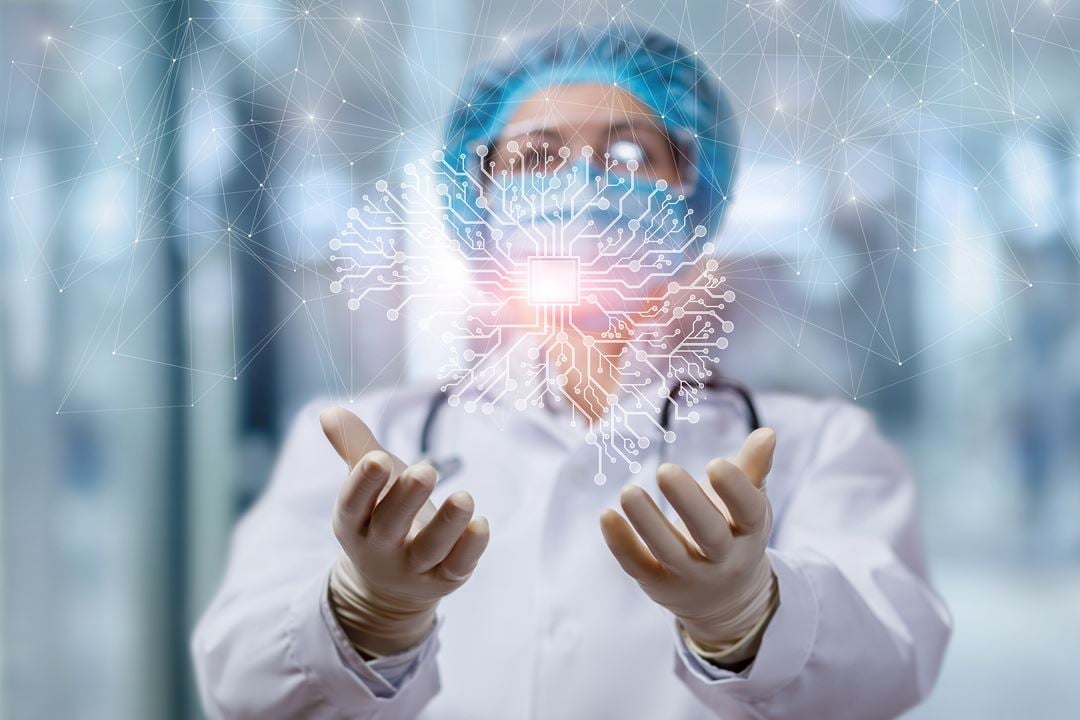SINTEF has extensive experience in health research and in the use of artificial intelligence (AI). Here are examples of four areas where AI can bring value in healthcare:
Better and more efficient diagnostics
Artificial intelligence is today mostly used to automatically analyse medical images. Research shows that decision-making systems based on image analysis in certain cases can make assessments and make diagnoses as well as radiologists or pathologists. And they can do so faster and with more accuracy. Such systems are taught to see patterns from images already analysed by experienced doctors and get better the more images they can use to train themselves. Together, radiologists and AI make a dream team!
Artificial intelligence enhances the patient's experience
Technology solutions such as virtual reality (VR), chatbots and personal digital assistants are playing a growing role in many people's lives. To varying degrees these solutions are powered by artificial intelligence. These solutions will become an increasingly important part of how a patient deals with daily life and the disease. There are few such systems in active use today, but it's becoming more widespread. It is expected that in the near future they will be able to help many, especially chronically ill patients, to understand and manage their own situation and illness.
Make the most of limited resources
Healthcare professionals make many decisions every day about how they can best utilize limited resources to provide the best possible healthcare services. Examples range from the utilization of expensive medical equipment and staff planning to the most efficient distribution of vaccines and other medicines. In such situations artificial intelligence can help by choosing good solutions among an extreme amount of options.
Development of new drugs
Developing a new drug requires a long process of complicated decisions and handling of large amounts of data. Artificial intelligence can help researchers extract important information from test data, generate hypotheses and analyse results. This can contribute to better drugs and faster market entry.
Extensive research is also underway on how large datasets can make treatment better and more personalized. Research is being done on using data from DNA analysis or other biological samples to develop medicine that is specially adapted to the individual patient.
Ethics is important
In Norway, we have unique health data that can be invaluable for training algorithms. Utilization of this must be done in an ethical and responsible manner that safeguards the privacy of the individual data providers. There are also strict legal requirements for how anonymised data from research projects or directly from patient records can be used for other purposes than originally intended. This is called secondary use of health data.
We must ensure good processes and solutions that make it possible to understand how artificial intelligence makes decisions and how it affects medication and treatment.


